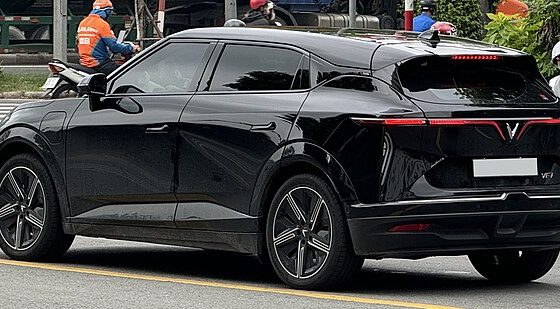A video accompanying a headline Wall Street Journal piece detailing the struggles of Ford Motor Company and its CEO, Jim Farley, shows a woman walking through an enormous electric vehicle graveyard in China as the narrator warns viewers that “Washington is worried that an oversupply of Chinese EVs will flood the global market and there are already signs of a deluge of EVs in China.”
Funny, that sounds like it could become a financial “bloodbath” for U.S. automakers like Ford, who are struggling to build successful EV divisions but losing billions in the process despite benefitting from billions in subsidies and tax incentives funded with rising federal debt. That is mainly thanks to provisions contained in both the 2021 Infrastructure Investment and Jobs Act and the 2022 mis-named Inflation Reduction Act (IRA), the crowning legislative achievements of the Biden-Harris regime.
Despite the inflationary impacts of those multi-trillion-dollar debt vehicles, we still hear President Joe Biden occasionally boasting about their profligate spending and “investments” in intermittent energy sources. But Vice President Kamala Harris rarely focuses on them on the campaign trail. In fact, when she was asked by her ABC teammates during Tuesday’s 3-on-1 debate with former President Donald Trump to talk about how she would fight climate change — the ostensible purpose of a combined $600 billion in subsidies contained in those bills — Harris didn’t answer the question at all, choosing instead to go off on a tangent related to affordable housing.
One mention she made of the IRA during the debate was to brag about casting the deciding vote on legislation that would increase oil-and-gas leasing on federal lands. She gave that answer without mentioning the IRA by name, and even that claim was misleading. It is true the IRA does contain language intended to force the Department of the Interior (DOI) to hold more federal lease sales, but DOI has simply ignored it as Biden and Harris look the other way.
Harris also said that Trump has called for a “bloodbath” if he is not elected, but again, her answer was misleading, a transparent effort to portray her opponent in a negative light. The context of Trump’s comment from March was in fact his concern about Chinese efforts to encroach into the U.S. EV market with high-quality cars its companies are able to sell for a fraction of the prices needed by U.S. automakers like Ford and GM.
Such a bloodbath is in fact the very concern expressed by Farley in the WSJ’s article. At one point, he describes a potential Chinese entry into the U.S. EV market as “an existential threat,” which was exactly the point Trump made to his audience of concerned autoworkers in that March speech. Farley’s concerns are well-founded: He and his management team admit they expect the company to sustain $5 billion in losses on its Model e division in 2024, a loss that would build on the massive losses it suffered the previous two years. Naturally, Farley tells the WSJ that eliminating those losses is his highest priority, “because the $5 billion loss is so visible.”
Obviously, this is already an unsustainable situation, one that could become a fatal problem if Chinese companies are allowed to flood the U.S. market with quality cars they are able to sell at far lower prices. Farley is old enough to remember the fallout to the U.S. auto industry in the 1980s, when Japanese car makers like Toyota and Nissan were able to flood the market with quality, affordable cars. Ford, GM and Chrysler managed to survive that earlier “bloodbath,” but only after a decade of struggling to catch up.
Heaping insult upon injury, the domestic market for EVs overall has softened throughout 2024, as consumers become increasingly concerned about the lack of reliable charging infrastructure and the enduring limitations that have plagued electric cars since their invention 140 years ago. The simple fact is that Trump is right when he warns that a Chinese entry into the U.S. market would result in a financial bloodbath for car companies like Ford, and Harris has no real plan to avoid it.
No wonder she doesn’t want to bring it up on the campaign trail.sys
Featured Image Credit: Vnsg304
















